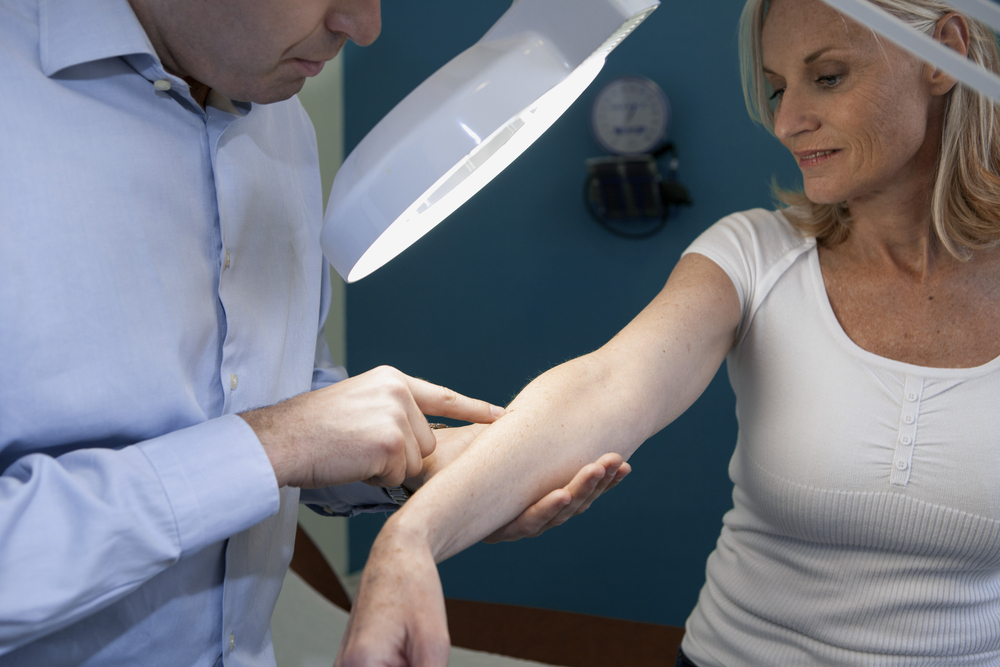Untreated Skin Cancer in the Elderly
Category:

Did you experience a few sunburns when you were younger? It may surprise you to learn that having five or more sunburns doubles your chance of getting melanoma, the most serious type of skin cancer. In fact, skin cancer is the most common type of cancer worldwide, and one in five Americans will develop skin cancer by age 70, and the odds of developing skin cancer increase as you age.
Download Our FREE Path to Care Guide
Why Is Skin Cancer More Common in Older People?
Age and skin cancer go hand in hand. Changes that occur to skin as we age, like the skin becoming more stiff and less elastic, make it easier for skin cancer to develop. Older skin has likely had much more sun exposure and elderly people tend to be less vigilant about using sunscreen, leading to a higher risk of melanoma. Melanoma also spreads to other parts of the body more easily in elderly adults.
The two most common types of nonmelanoma skin cancer are basal cell carcinoma and squamous cell carcinoma. Both of these types of cancer occur in the outer layer of the skin and can be exacerbated by sun exposure. While these cancers are not as life-threatening as melanoma, they can still be dangerous.
What is the Life Expectancy of Skin Cancer?
Generally, those with stage zero, one, or two melanoma live at least five years after diagnosis. Other skin cancers are generally not as life-threatening, and while they still should be checked and treated by a doctor, they do not have the impact on life expectancy that melanoma does. There are a variety of treatments for skin cancer, such as surgeries, radiation therapies, and skin cancer resection.
Surgery is the most common and often the best treatment for skin cancers. Radiation for skin cancer in the elderly can be a useful alternative for someone who does not want the risks associated with surgery. It can also be used in combination with surgery to make sure all the cancer cells are destroyed. Skin cancer resection is a simpler form of surgery that only requires local anesthetic and can sometimes be done in a dermatologist’s office with no hospital visit required.
While there are several treatment options for skin cancer, they all pose risks, especially for the elderly population. However new studies suggest that for nonmelanoma skin cancer, it may be best to leave it untreated.
The words untreated skin cancer sound scary, but nonmelanoma skin cancers are common among the elderly, and at times their treatments can do more harm than good. Skin cancer surgeries are often recommended; however, surgery comes with complications that can shorten life expectancy, making the cancer moot.
Surgeries and other nonmelanoma skin cancer treatments can also require care after the surgery, and some elderly adults either cannot take care of their post-surgery needs on their own or have no one who can help them. Elderly patients with a cognitive impairment are generally advised against surgery as well.
Since nonmelanoma cancers are generally not life-threatening, they can be safely left untreated, and the elderly person can focus on any other health needs.
To learn about our home care services, contact our caregiving team today at 1-800-GRISWOLD or find a Caregiver near you.
Subscribe
Date: 2025-01-30
Category:


